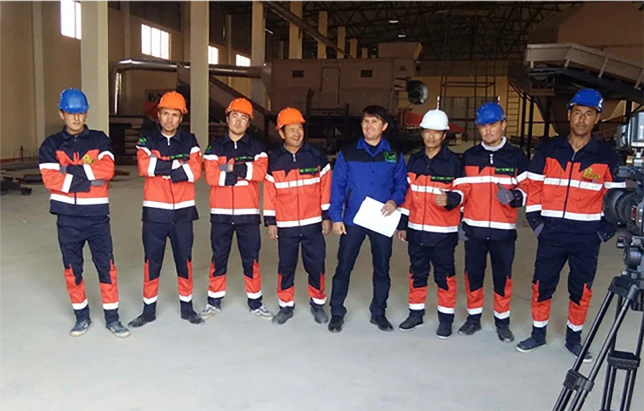

Окт . 22, 2024 09:31 Back to list
Industrial Shredders An Essential Tool for Waste Management
In today's fast-paced industrial landscape, efficient waste management has become an increasingly pressing concern. As companies seek to reduce their environmental impact and adhere to stringent regulations, industrial shredders have emerged as a vital tool in the recycling and waste processing industry. These powerful machines not only help in minimizing waste volume but also in enhancing material recovery processes, ultimately supporting sustainable practices.
The Functionality of Industrial Shredders
Industrial shredders are designed to break down large volumes of materials into smaller, manageable pieces. They are utilized across various industries, including manufacturing, recycling, and municipal waste management. The shredding process involves feeding materials into the machine, where they are cut and torn apart by sharp blades. The output can range from coarse chunks to finely shredded particles, depending on the specified requirements.
The versatility of industrial shredders is one of their key features. They can handle an impressive array of materials, including plastics, metals, wood, paper, and even electronic waste. Different configurations and blade designs cater to specific applications, allowing companies to select the best type of shredder for their needs.
Types of Industrial Shredders
There are several types of industrial shredders, each designed for specific tasks
1. Single-Shaft Shredders These are commonly used for plastics and rubber materials. The design consists of a single rotor that shreds materials into uniform sizes, making them suitable for subsequent recycling processes.
2. Two-Shaft Shredders Known for their robustness, these shredders feature two parallel shafts that turn in opposite directions. They are ideal for processing a wide range of materials, including bulky items and electronic waste.
3. Granulators While not solely shredders, granulators are often used alongside industrial shredders in a recycling setup. They break down materials into smaller granules, which can then be reprocessed for manufacturing new products.

4. Universal Shredders These versatile machines combine the functionalities of different shredders, allowing them to process various types of materials. They are frequently employed in recycling facilities where diverse waste streams are common.
Benefits of Using Industrial Shredders
One of the primary benefits of industrial shredders is their ability to significantly reduce waste volume. By breaking down materials into smaller sizes, companies can save on storage space and disposal costs. Moreover, shredding is essential for ensuring that materials are properly prepared for recycling, enabling better reprocessing and waste diversion from landfills.
Another important advantage is the enhancement of safety in waste management processes. Shredding can help eliminate sharp edges and hazardous materials, making it safer for workers handling waste. Additionally, shredders can help prevent the unauthorized recovery of sensitive information when shredding documents or electronic devices, thus maintaining data security.
Environmental Impact and Sustainability
As industries face mounting pressure to improve their environmental performance, industrial shredders play a critical role in promoting sustainability. By facilitating the recycling process, they help conserve natural resources and reduce the energy footprint associated with manufacturing new products. Many shredders are also designed to operate efficiently, consuming less energy and minimizing emissions during their operation.
Furthermore, industrial shredders support the circular economy model, where materials are continuously reused and recycled. This reduces the reliance on virgin resources and encourages a more sustainable approach to production and consumption.
Conclusion
In a world increasingly focused on sustainability and efficient resource management, industrial shredders stand out as indispensable tools. They not only help businesses comply with regulatory requirements but also contribute to broader environmental goals. As technology continues to evolve, we can expect innovations in shredder designs and functionalities, making them even more effective in waste reduction and material recovery efforts. By investing in industrial shredders, companies can take meaningful steps towards achieving their sustainability targets while improving operational efficiency and safety.
Latest news
Troubleshooting Common Eddy Separator Problems
NewsJul.04,2025
The Role of Metal Recycling Plants in Circular Economy
NewsJul.04,2025
The Impact of Recycling Line Pickers on Waste Management Costs
NewsJul.04,2025
Safety Features Every Metal Shredder Should Have
NewsJul.04,2025
How Industrial Shredders Improve Waste Management Systems
NewsJul.04,2025
How Cable Granulators Contribute to Sustainable Recycling
NewsJul.04,2025